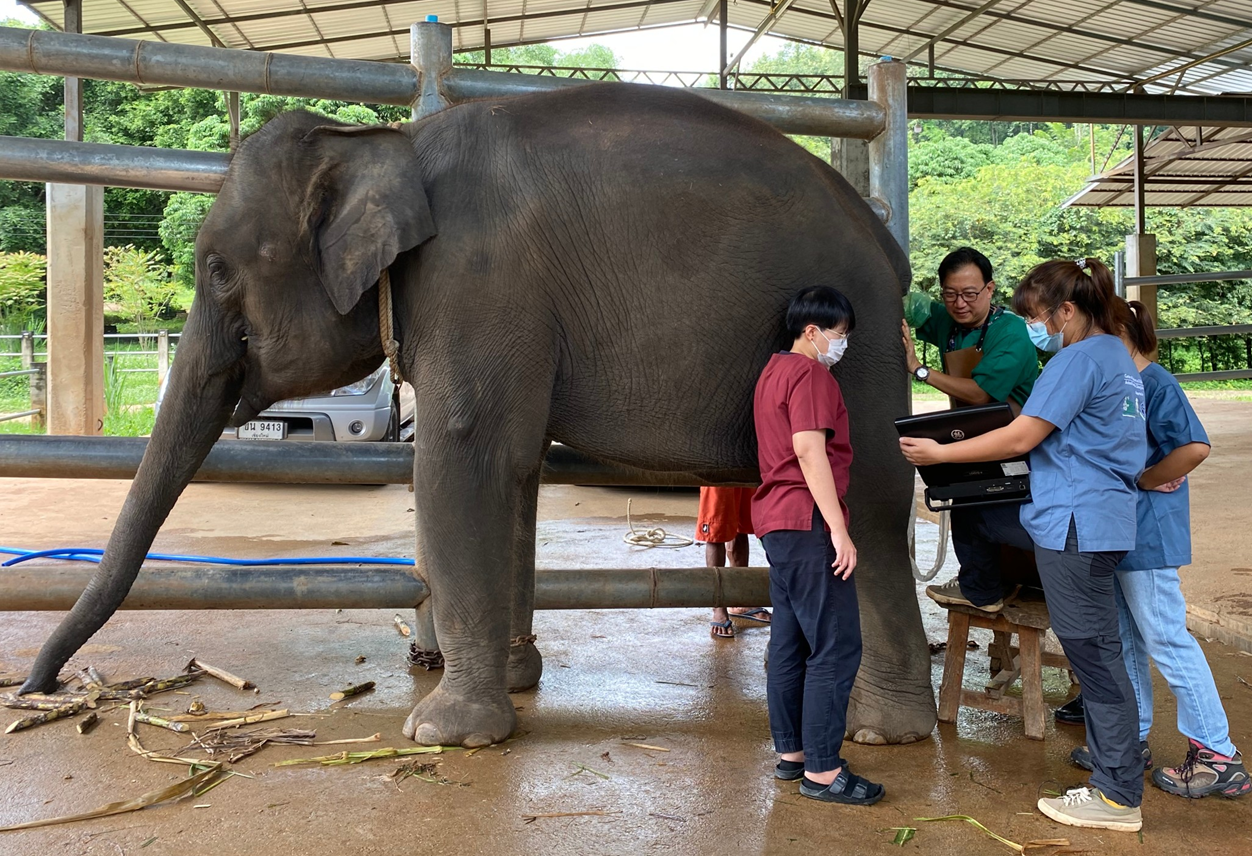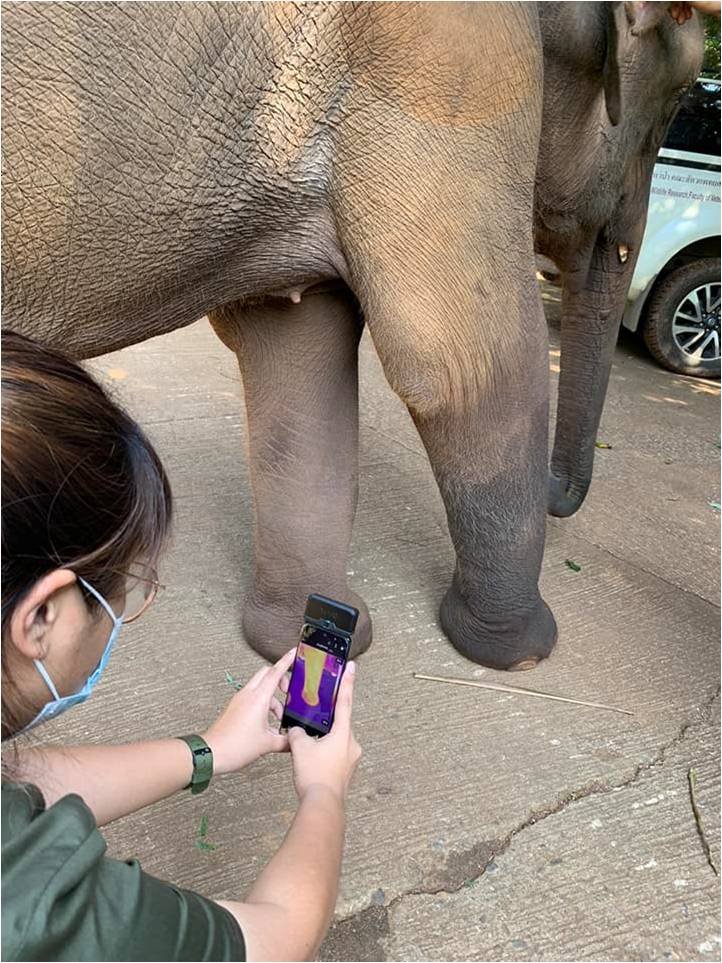The beginning of October saw the Chiang Mai University Mobile Vet Clinic head to the Mae Tang area to check on a female elephant with reproductive issues.
Dr. Eye worked with the veterinarian for the elephant camp on conducting hormonal analysis of the female, discovering her progesterone levels have been lower than normal since the beginning of the year. Otherwise, the elephant is in good health. On October 4th, the veterinarians decided to perform a rectal ultrasound on the elephant. Nothing abnormal was found on the ultrasound, leading the veterinarians to determine that the elephant’s ovaries were inactive. Medical and dietary supplements and treatments were started as a first line of treatment. Dr. Eye later received confirmation from the elephant owner that the treatments were helping and the elephant’s progesterone levels were increasing.
The CMU Team and camp veterinarian conducting a rectal ultrasound on elephant with reproductive issues
Later in October, Dr. Eye and the CMU Team headed to the Hang Dong area to treat wounds on a few elephants using laser therapy, which promotes healing, lowers swelling and can prevent infection. One elephant had a wound on his right ear and a second elephant had a wound on his head. The laser therapy was planned for every two days. Upon follow up, ten days after treatment began, the elephant’s head wound was healing well, and the veterinarians decided to reduce laser therapy to once a week.
Finally, the team was called upon by the Thai Elephant Alliance Association to help with an elephant calf’s right front leg which was lame. After already applying an herbal massage and administering steroid treatment, the CMU Team was asked to perform laser therapy on the calf’s leg. Using an infrared camera, the vet could pinpoint the area of the leg that was causing the lameness. After finding the area of warmth on the front ankle, the laser therapy was performed. During the laser therapy the calf was calm, which helped the veterinarians perform their work.
During the last week in October, the Faculty of Veterinary Medicine at Chiang Mai University teamed up with the Department of Companion Animals and the Asian Society of Conservation Medicine (ASCM) to conduct the 15th Annual International Wildlife Conservation and Medicine Conference.
The conference included research presentations on topics of reptile disease, diagnostic and pathology skills and EEHV clinical hematology and blood cross-matching. It was also a chance for international networking between veterinarians, academics, researchers and students and an opportunity to come together to update and exchange information on wildlife health management and conservation.
In November, AES’ Board of Directors voted to continue funding the salary for Dr. Eye to allow her to continue her work for another year with the CMU Mobile Vet Clinic. Please help us support the CMU Team and the elephants of northern Thailand by making a one-time donation or becoming a monthly donor by clicking here. Thank you to those who have already given. We are proud to enter the third year of support for this vital veterinary team and we couldn't do it without you!




